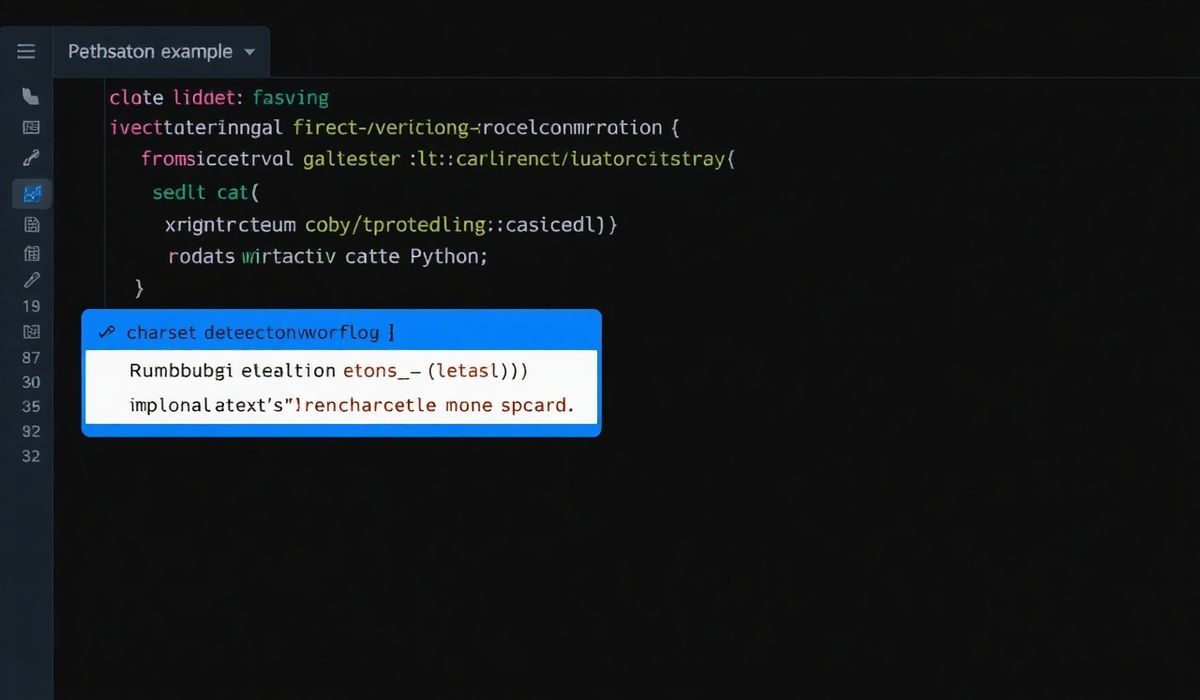Introduction to Charset Normalizer
The charset-normalizer library is an essential Python package that automatically detects and normalizes character encodings of text files and streams. It acts as an excellent alternative to chardet, supporting a wider range of encodings and providing more accurate detection outcomes. Whether you’re processing multilingual data or working with unknown text files, charset-normalizer can save you time and ensure flawless text handling.
Key Benefits of Charset Normalizer
- High accuracy in detecting encodings.
- Better support for UTF-8 and multi-byte encodings.
- It enables robust handling of text normalization and repair.
- Lightweight and straightforward to use with consistent API design.
Installation
Install charset-normalizer via pip:
pip install charset-normalizer
Basic Usage
Here is an example of detecting encoding using charset-normalizer:
from charset_normalizer import from_path
file_path = 'example.txt'
# Detecting encoding from a file
results = from_path(file_path)
# Display encoding details
print("Detected Encoding:", results.best().encoding)
print("Confidence Level:", results.best().confidence)
print("Text Preview:", results.best().replace('\n', ' ')[:50])
Working with Streams
charset-normalizer is capable of detecting encodings from byte streams as well:
from charset_normalizer import from_bytes
data = b'\xe2\x98\x83 Hello World \xe2\x98\x83'
# Detecting encoding from the byte stream
results = from_bytes(data)
# Display encoding details
print(f"Detected Encoding - {results.best().encoding}")
print(f"Decoded Text - {results.best().decoded_payload}")
Handling Multiple Files
Batch processing of files within a directory can also be achieved seamlessly:
import os
from charset_normalizer import from_path
root_dir = './text_files'
for filename in os.listdir(root_dir):
file_path = os.path.join(root_dir, filename)
if os.path.isfile(file_path):
results = from_path(file_path)
print(f"File - {file_path}")
print("Detected Encoding:", results.best().encoding)
Integrating Charset Normalizer into a Python App
Consider a file-processing app that reads multiple text files, detects their encoding, and consolidates decoded outputs into a single text file. Here’s how this can be built using charset-normalizer:
import os
from charset_normalizer import from_path
def consolidate_texts(input_dir, output_file):
with open(output_file, 'w', encoding='utf-8') as out_file:
for filename in os.listdir(input_dir):
file_path = os.path.join(input_dir, filename)
if os.path.isfile(file_path):
results = from_path(file_path)
if results.best():
decoded_text = results.best().decoded_payload
out_file.write(f"--- {filename} ---\n")
out_file.write(decoded_text)
out_file.write("\n\n")
# Example usage
consolidate_texts('./documents', 'consolidated_output.txt')
In this example, multiple files within the documents folder are processed, their encodings detected and corrected, and the text is stored in a unified file called consolidated_output.txt.
Conclusion
The charset-normalizer library simplifies handling the complexities of encoding detection and text normalization in Python. It’s a must-have tool for any developer working with diverse or multilingual datasets. Whether you’re writing basic scripts or integrated tools, charset-normalizer provides the reliability and utility you need.




